Kent: A look inside the world of murky sports ethics, Tigers tough stance with Latrell
In Australia’s sporting landscape ‘doing the right thing’, too often comes second to ‘finding a way to win’, writes Paul Kent, which is why we should be all the happier that a tough new cop is on the beat.
Olympics
Don't miss out on the headlines from Olympics. Followed categories will be added to My News.
BRONTE CAMPBELL: We must talk about doping
SILENCE: ABC continues Tokyo Olympic boycott
Only in the complicated world of sport’s administration is losing so easily interpreted as winning.
Perhaps that is why no scoreboard is kept in the boardroom.
In the interests of transparency today’s sermon comes with fresh wounds.
For the past two days Australia’s doping body, ASADA, has hosted a two-day leadership in sport conference that welcomed sports from around Australia, overseas speakers, and probably the odd Russian listening in on tapped phones. They need only the free Wi-Fi.
Stream over 50 sports Live & On-Demand with KAYO SPORTS on your TV, computer, mobile or tablet. Just $25/month, no lock-in contract. Get your 14-day free trial and start streaming instantly >
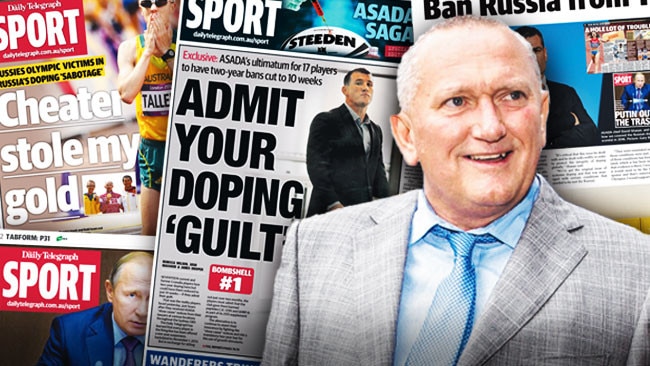
There was well over 100 people, from 33 sports and government departments around the country, and halfway through the first day tools were downed and the entertainment was welcomed in, which is a loose description.
This entertainment was a three-a-side debate on whether Sports Have Failed to Provide Ethical Leadership in Morally Complex Times.
I say loose entertainment as, not only is it tremendously difficult to find any levity in arguments over ethical leadership, to say nothing of morally complex times, but, worse, I spoke for the affirmative.
And you bet we got flogged.
What more can I say?
It looked like a slam dunk.
The Gillard report into West Coast’s drug culture, hidden by the AFL for nine years, which showed the Eagles’ knew about the club’s drug culture but overlooked it because “they were winning”.
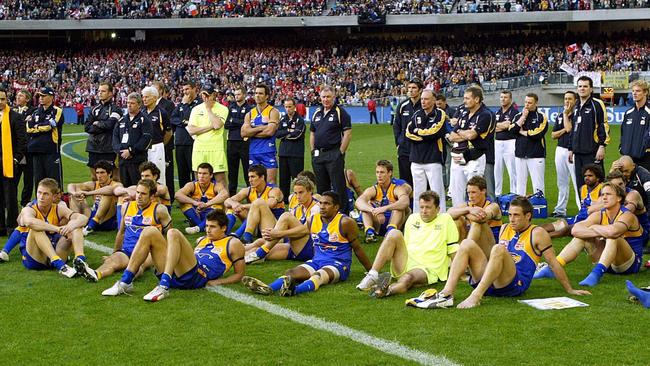
Israel Folau was sacked less because Rugby Australia was taking an ethical stand on his offensive social media rambling than the fear sponsors, including major sponsor Qantas, might pull their sponsorship if he remained.
Folau posted the same message a year earlier, remember, for which he got only a warning.
The NRL’s celebrated no-fault stand down policy, widely lauded as an example the game will no longer tolerate anti-social behaviour, particularly against women.
But when Jack de Belin challenged it in court the NRL submitted evidence that between $15 million and $20 million in sponsorship was set to walk away if the game did not act.
There’s three potent examples from Australia’s three major football codes.
Systematic salary cap cheating, tolerated drug cultures, rubbery consistencies on athlete punishment, poor treatment of women, there was examples everywhere … but it was hard to sell to a room full of sporting leaders who just happen to believe they provide ethical leadership in morally complex times.
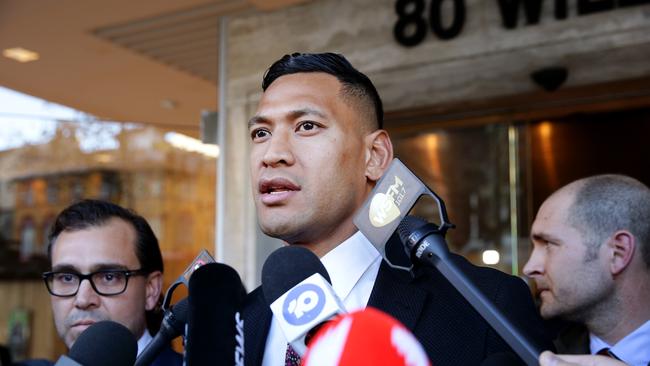
Tough crowd.
Trying to convince them that their decisions were really dictated by the two great pillars of professional sport, money and winning, was probably lost before it even began.
An example came earlier this month when Cricket Australia (CA) banned Emily Smith for a year, with nine months suspended, for posting the Hobart team list on her Instagram account.
This was sport going the other way. Smith’s ban was not a punishment. It was a bludgeoning with a small hammer.
It could be argued as ethical but it also highlighted how tough it is to get it right.
The detail in CA’s report was not so much Smith’s breaking of team rules but the potential for damage around the game, which few understood and begins to reveal the murky world of sports ethics.
Investigators paid particular attention to who was following Smith’s account.
Why were they following it?
Smith paid the price for being, at best, naïve. So many athletes have suffered for similar reasons.
And here is the hope for Australian sport.
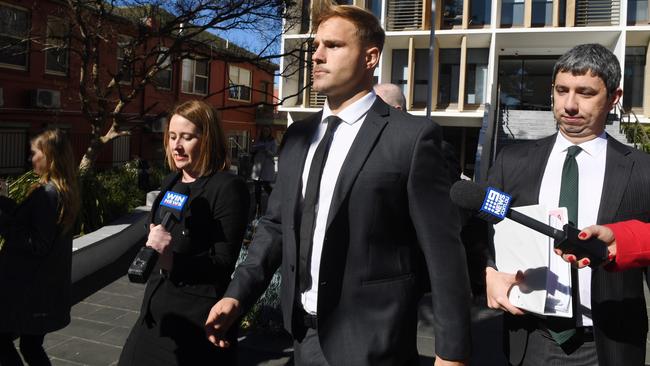
David Sharpe is a former Federal copper, one of the brightest, and now heads up ASADA.
As bureaucrats go Sharpe is an unusual one. He ignores the first rule of bureaucracy, which is to look after No 1. One of his driving changes as the new chief executive of ASADA is the dissolution of ASADA, which will cease to exist on July 1. In effect, he pushed himself out of a job.
And for no other reason than Sharpe oozes integrity.
His understanding of crimes around the world, from the international drug trade to child exploitation, made him one of the best assets Federal Police had and saw him targeted to head up ASADA. He quickly realised its immense shortcomings, never better shown than during the Essendon-Cronulla drugs saga.
Players were banned, coach stood down, officials resigned and two sports were left devastated. And yet the man regarded as the facilitator at both clubs, Stephen Dank, could not be forced to answer even one question by ASADA.
It showed how toothless ASADA, with barely any true investigative powers, actually was.
With ASADA unable to sanction Dank it took WADA, the World Anti-Doping Agency, to ensure Dank does not darken any more dressing rooms.
World sport is facing a dark times.
In a little over a week WADA will hand down its sanction against Russia for deleting Russian doping tests in data they were forced to hand over to WADA.
Many sporting bodies around the world have called for the strongest possible action. The International Olympic Committee has demanded the “toughest sanctions”.
The punchline was then delivered when the IOC said it would welcome Russian athletes in Tokyo “provided they were clean”.
How will they know?
What is known is that Tokyo is shaping as the fifth Olympics, summer and winter, where a cloud has hung over Russian athletes and its state-sponsored, calculated and systematic doping system.
And now, with the December 9 decision approaching, Russia is playing dirty.
Earlier this month Sport Australia was hacked. The AIS and Sport Australia have launched an investigation into what information was accessed.
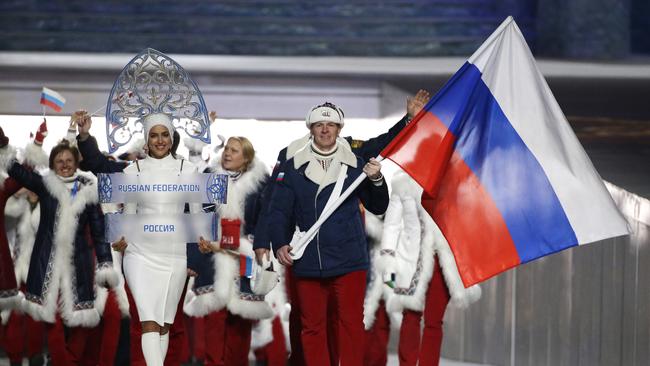
Microsoft revealed last month that hackers had used its software to hack sensitive information at 16 different national and international sporting and anti-doping organisations around the world.
The attacks began September 16 and were the work of Russian state-sponsored hacking group Fancy Bear, or APT28. Their attacks came just days before WADA announced Russia could face further punishment for inconsistencies in its drug testing data following an investigation for possibly manipulating doping data in 2015.
This comes after Fancy Bear hacked WADA in 2016 and released confidential information of Australian athletes such as swimmers Cate Campbell, Taylor McKeown and Madison Wilson and canoeist Jess Fox.
The stolen information centred around therapeutic use exemptions. The permission to use certain drugs, like asthma inhalers, for legitimate medical reasons.
It is suspected Russia intends to release its information to muddy the water. Allegations against Russian athletes will be met with leaked allegations against other athletes.
Nobody is certain, though, what Russia will do with whatever it might have. So a clock ticks between now and December 9.
So Sharpe keeps the focus here at home.
On July 1 ASADA will merge with the National Integrity of Sport Unit inside the Department of Health, as well as elements of Sport Australia to become Sports Integrity Australia.
Greater investigative powers are now before Federal Parliament and should, and need, to be pushed through.
Sharpe wants to take ASADA away from old-fashioned policing by statistics and create a genuine protection for athletes and their sports.
He wants the power to target the facilitators.
He wants greater education at grassroots. He wants co-operation with government, law enforcement and intelligence agencies, working closely with bodies like the NRL and AFL integrity units, to share information and head off trouble before it begins.
Sporting administrators are the great dreamers.
They wish for a better world and head out each day to achieve it, the only scoreboard around is the one ticking in their head.
For them to survive even the cynic is happy to cop the odd loss. Still hurts, though.
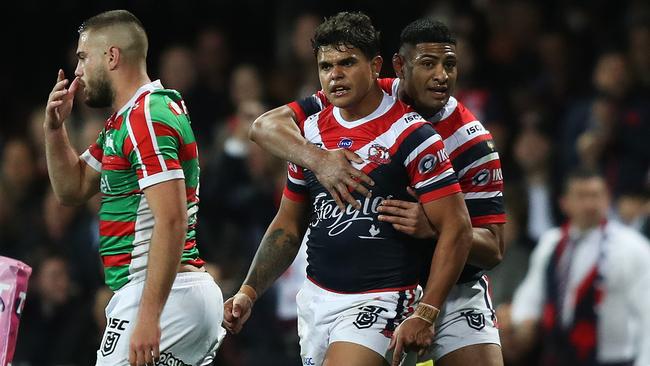
TIGERS SHOW CLAWS IN LATRELL SNUB
Player movement in the NRL, and the direction they go, tells you a lot about teams and where they are heading.
Wests Tigers’ decision to withdraw its offer to Latrell Mitchell is among the best indications yet that the Tigers have turned the corner after a decade of poor decisions, dodgy recruitment and almost-got-there seasons.
While Mitchell might still arrive at the club the Tigers have shown they are not prepared to be pushed around.
The Tigers were once considered one of the NRL’s superannuation clubs, a joint you went to at the end of your career for a big contract and small expectations.
Not so anymore.
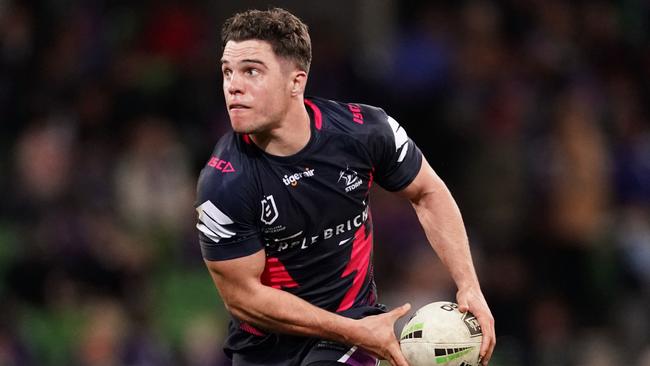
With Michael Maguire driving the club, and ably supported by chief executive Justin Pascoe, the Tigers have shown they are no longer prepared to be pushed around and that they will go after players only if the price is right and circumstances sound.
Good clubs, like the Roosters and Storm, have operated this way for years.
Brodie Croft’s release on Friday to join Brisbane shows where both those clubs are, too.
Croft struggled to make it as a halfback at the Storm. Yet Brisbane, which struggled all season without an established halfback, believe Croft is an improvement on where they are.
It remains to be seen if Anthony Seibold can find in Croft what Craig Bellamy couldn’t but it heaps the pressure on the Broncos again for next season.
Originally published as Kent: A look inside the world of murky sports ethics, Tigers tough stance with Latrell


